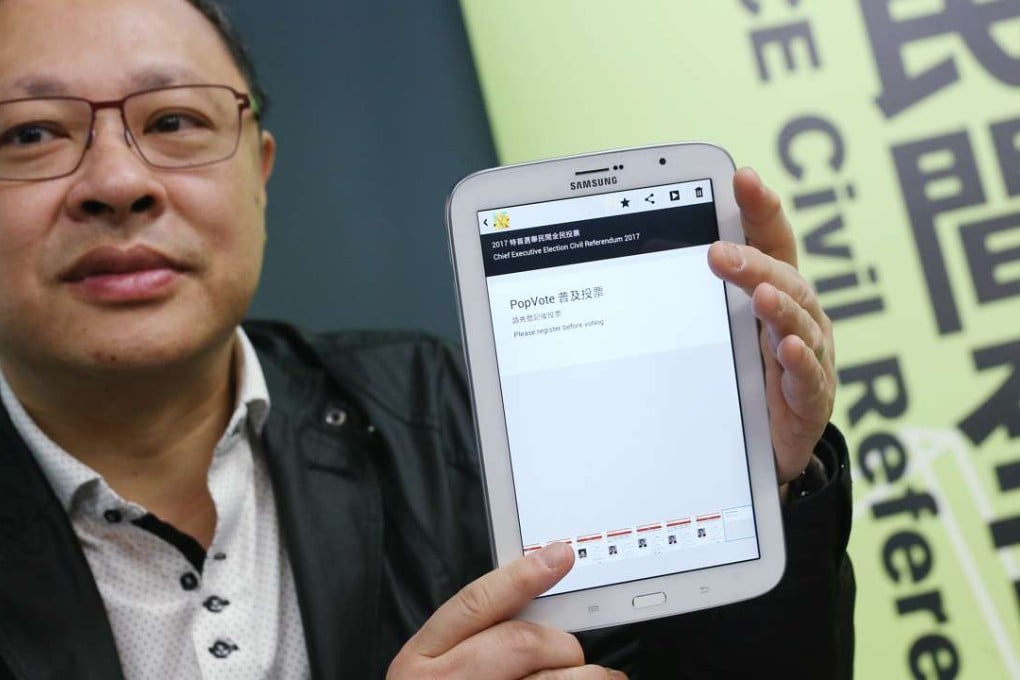Organisers of mock poll to pick Hong Kong leader hope one million take part
Occupy co-founder Benny Tai urges the 1,194 Election Committee members who will vote for real on March 26 to take note of the people’s choice

Organisers of a mock vote to choose Hong Kong’s next leader aim to draw one million participants and show the 1,194 people that have real votes who the public want in charge.
The “civil referendum” led by Occupy Central co-founder Benny Tai Yiu-ting will ask people which of the three candidates they prefer through online app Telegram or at physical booths two weeks before the March 26 election.
The 325 pan-democrats on the Election Committee have agreed to take either “major reference” from the result or to completely follow it, he said.
“State leaders in Beijing have said one of the four criteria for the desired candidate is that he or she is supported by Hong Kong people,” Tai said. “So I think not only the pan-democrats but also other members of the committee should consider our result, which will be a good indicator of public opinion.”
The other three criteria listed by the central government is that the candidate must love Hong Kong and the country, be capable of governing and be trusted by Beijing.